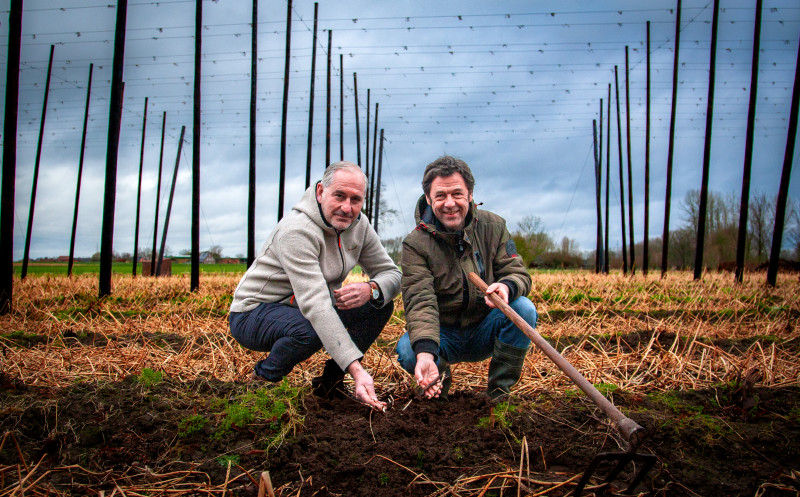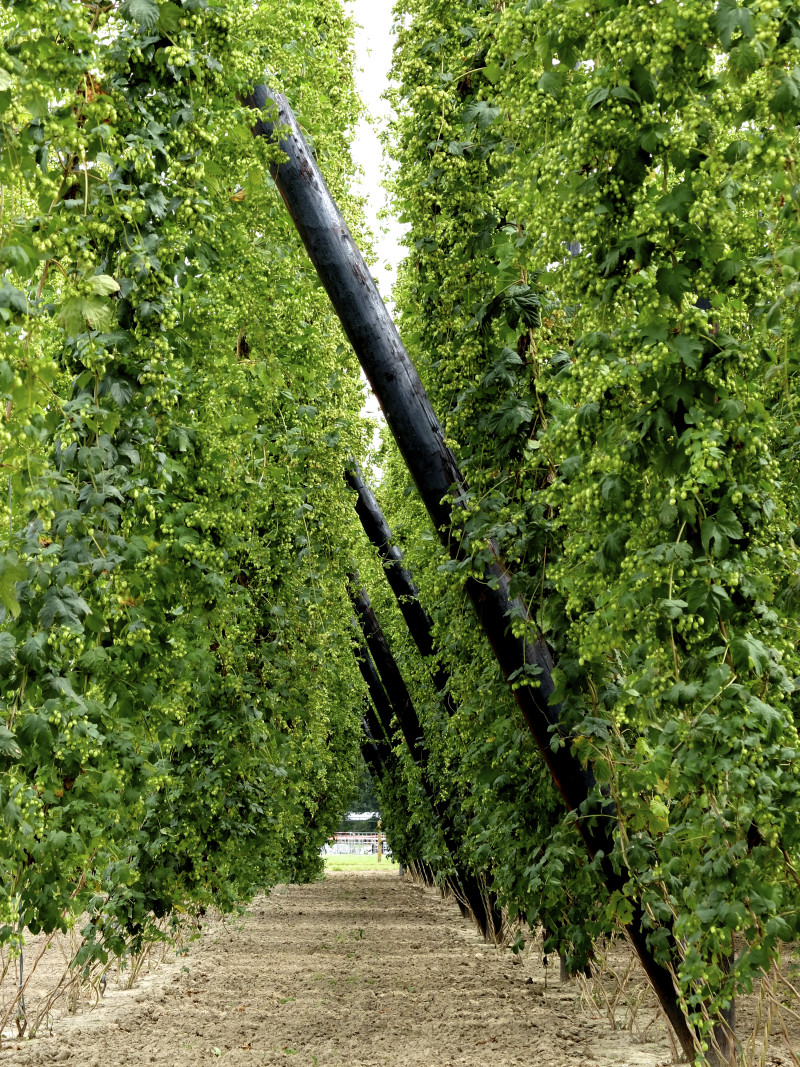What grapes are to fine wine, are hops to great beer. By investing in more locally grown hops, Brewery Palm ensures the future of this perennial in Belgium. The result is a strong comeback of a popular hops variety, that gives their beers a unique fine hoppy aroma.

Hops, a revival
Around 2011, the cultivation of hops had almost become history. Regretting this situation, Brewery Palm decided to put this to an end by creating hops fields with a surface of more or less 45 acres. The result? A small revival with about 10 hop farmers working together to ensure the future of hops in the region.
Every year, three thousand Hallertau Mittelfrüh vines swirl up to seven metres into the air. After the blossom season, the plant forms hop cones, which are plucked and dried early September, ready for brewing delicious beer. Henceforth, De Orde van de Groene Bel will be in charge of growing and harvesting Palm's hop plantation.
The non-profit organisation is working with various actors to put hops back on the map as a regional product: "It fits into our strategy of creating a living regional economy," explains Joris Vanderveken, president of the non-profit organization.

A vigorous, climbing, unique perennial
Besides bitter substances and natural preservatives, hop cones contain hundreds of aromatic substances that determine the flavour. Thanks to the wide range of hop varieties available, brewers of speciality beers can experiment with their palette of flavours. Brewery Palm had its eye on Hallertau Mittelfrüh, a very popular variety with a fine hoppy and herbaceous aroma. The variety fell into oblivion for a long time because it was prone to diseases. However, thanks to modern 'virus-free' varieties, it is now making a strong comeback.

